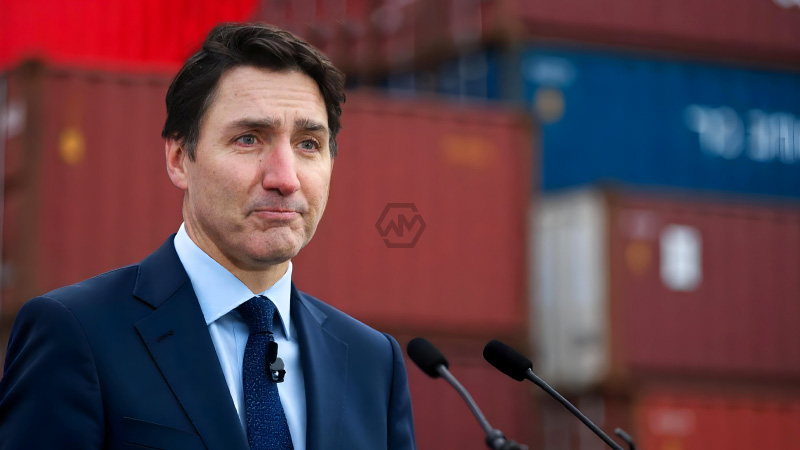- Canada announces 25% counter-tariffs on $155 billion worth of U.S. imports.
- Immediate tariffs on $30 billion worth of goods, with more to follow in 21 days.
- U.S. tariffs on Canadian goods are part of Trump’s strategy against illegal immigration and drug trafficking.
The escalating trade dispute between Canada and the U.S. has reached a new level as Prime Minister Justin Trudeau announces a retaliatory 25% tariff on American goods.
Among the targeted U.S. products are beer, wine, bourbon, fruit juices, clothing, and household appliances. The move is expected to increase prices for consumers on both sides of the border, with economists warning that the escalating trade war could disrupt supply chains and weaken economic growth.
U.S.-Canada Trade War Intensifies as Trudeau Hits Back
The Trump administration’s decision to impose 25% tariffs on Canadian goods, including a 10% levy on energy imports, has been met with strong resistance from Canada. The White House claims the move is necessary to curb illegal immigration and fentanyl trafficking, but Canadian officials see it as an unfair attack on trade relations. Trudeau’s government has responded swiftly with tariffs on $155 billion worth of U.S. goods, a direct message that Canada is willing to defend its economy.
American industries that rely on exports to Canada are expected to feel the impact of these counter-tariffs. Farmers, beverage companies, and manufacturers of household goods could face declining sales as Canadian businesses look for alternatives. While Trump maintains that these tariffs will strengthen the U.S. economy, critics argue that they could backfire, leading to job losses and rising prices.
Canada’s retaliation highlights the growing economic tensions between the two nations. Historically close allies, the U.S. and Canada now find themselves in an escalating trade war that could have long-term implications for industries and consumers alike. With both governments refusing to back down, businesses and supply chains are bracing for uncertainty.
The coming weeks will be crucial in determining whether negotiations can ease tensions or if further escalation is inevitable. Markets are watching closely as policymakers navigate this high-stakes standoff, with the potential for ripple effects across global trade networks.
This trade war between the U.S. and Canada underscores the fragility of international relations, where economic strategies can quickly turn into political battles. As both nations stand firm, businesses and consumers face the real consequences of rising costs and disrupted supply chains.
“Trade wars are good, and easy to win.” – Donald Trump (2018)



